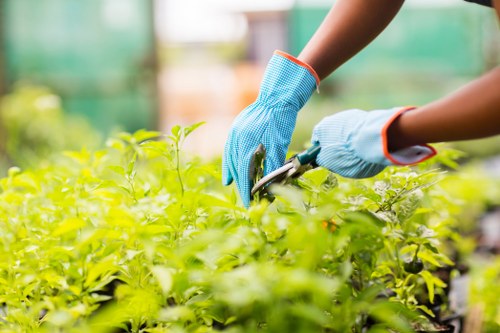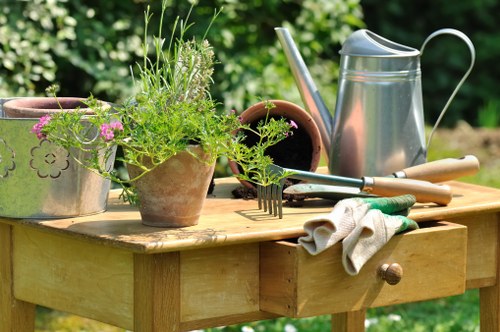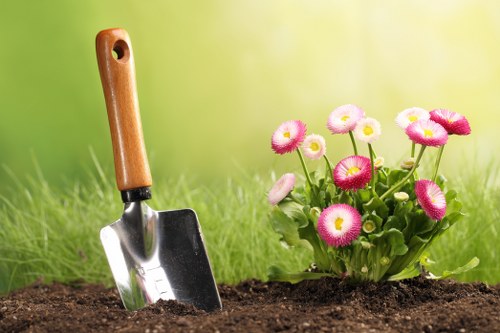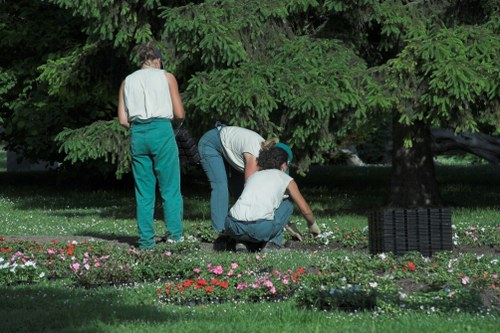Driveway Restoration Maryland: Transforming Your Home’s Entrance
A well-maintained driveway is more than just a place to park your car; it enhances the curb appeal of your home and ensures safety for you and your family. In Maryland, where weather conditions can take a toll on your driveway, restoration becomes essential to maintain its functionality and appearance.
Driveway restoration involves repairing and rejuvenating your existing driveway rather than replacing it entirely. This approach is not only cost-effective but also environmentally friendly, reducing the need for new materials and minimizing waste.
Whether you have a driveway made of asphalt, concrete, or pavers, restoration services can address issues such as cracks, potholes, and surface deterioration, giving your driveway a fresh and lasting finish.

Why Choose Driveway Restoration in Maryland
Maryland's unique climate, characterized by hot summers and cold winters, can cause significant wear and tear on driveways. Temperature fluctuations lead to expansion and contraction of materials, resulting in cracks and other damages over time.
Opting for driveway restoration in Maryland offers numerous benefits. It prolongs the life of your driveway, enhances its aesthetic appeal, and increases the overall value of your property. Restoration also addresses safety concerns by eliminating hazards like uneven surfaces and potholes.
Additionally, restoration is a more sustainable option compared to complete replacement. By repairing existing structures, you reduce the environmental impact associated with manufacturing and transporting new driveway materials.

The Benefits of Restoration Over Replacement
Choosing restoration over replacement offers several advantages. Restoration is typically faster and less disruptive, allowing you to use your driveway sooner. It is also more affordable, saving you money while still achieving excellent results.
Furthermore, restoration allows you to preserve the existing materials, maintaining the original look and feel of your driveway. This is particularly important for historic homes or properties with specific design requirements.
By addressing issues promptly through restoration, you prevent minor damages from escalating into more significant problems, ultimately saving you from costly repairs down the line.

The Driveway Restoration Process
The driveway restoration process involves several steps to ensure a durable and high-quality finish. It begins with a thorough assessment of the current condition of your driveway, identifying areas that require attention and outlining a tailored plan for restoration.
Surface preparation is a crucial step, involving cleaning the driveway to remove dirt, debris, and existing damage. This may include power washing and patching cracks or potholes to create a smooth and stable base for the restoration materials.
Once the surface is prepared, the repair and resurfacing phase begins. This may involve applying a new layer of asphalt or concrete, sealing cracks, and reinforcing areas that need additional support. The goal is to restore the driveway to its original strength and appearance.

Finishing Touches
After the main restoration work is complete, finishing touches are applied to enhance the driveway’s look and longevity. This can include seal coating to protect against weather and UV damage, as well as adding decorative elements such as color or texture to match your home's aesthetic.
Proper curing time is essential to ensure the materials set correctly and achieve maximum durability. During this period, it’s important to follow the contractor’s guidelines to maintain the integrity of the restoration.
Once cured, a well-restored driveway not only looks great but also performs efficiently, providing a safe and reliable surface for years to come.

Costs and Financing Options
The cost of driveway restoration in Maryland varies depending on several factors, including the size of your driveway, the extent of the damage, and the materials used. On average, homeowners can expect to invest between $3,000 and $8,000 for a comprehensive restoration project.
Additional costs may arise if there are significant structural issues or if you choose premium materials and finishes. It’s essential to obtain quotes from multiple contractors to compare prices and services offered.
Many restoration companies offer financing or payment plans to make the process more affordable. Exploring these options can help you manage the cost without compromising on quality.
Factors Affecting the Cost
Several factors influence the overall cost of driveway restoration. The type of material used—whether asphalt, concrete, or pavers—plays a significant role in pricing. Asphalt is generally more affordable, while concrete and pavers may cost more due to their durability and aesthetic appeal.
The condition of your existing driveway also impacts costs. Extensive cracking, potholes, or structural damage require more labor and materials to repair, increasing the overall expense.
Additionally, the size and layout of your driveway affect the cost. Driveways with intricate designs, curves, or multiple levels require more work, leading to higher costs compared to simple, straight-driveways.
Selecting the Right Contractor
Choosing the right contractor is critical to the success of your driveway restoration project. An experienced and reputable contractor ensures that the work is done correctly and efficiently, providing peace of mind and quality results.
When selecting a contractor, verify their licensing and insurance to protect yourself from any potential liabilities. A licensed contractor adheres to industry standards and regulations, ensuring the work meets all necessary requirements.
Checking references and reading reviews can give you insight into the contractor’s reliability and customer satisfaction. Don’t hesitate to ask for examples of previous work to assess their expertise and craftsmanship.

Questions to Ask Potential Contractors
When interviewing potential contractors, ask specific questions to gauge their suitability for your project. Inquire about their experience with driveway restoration, the materials they use, and the estimated timeline for completion.
Understanding their process and communication style is also important. A contractor who provides clear timelines, regular updates, and is responsive to your queries will contribute to a smoother restoration process.
Finally, obtain a detailed written estimate that outlines all costs involved. This helps prevent any unexpected expenses and ensures transparency throughout the project.

Maintaining Your Restored Driveway
Proper maintenance is essential to prolong the life of your restored driveway. Regular cleaning removes debris and prevents surface damage, while periodic inspections help identify and address minor issues before they escalate.
Sealing your driveway every few years protects it from weather damage, oil stains, and other common hazards. A sealed driveway is more resistant to cracking and fading, maintaining its appearance and functionality over time.
Addressing repairs promptly, such as filling new cracks or potholes, ensures the driveway remains in good condition and avoids costly repairs in the future.

Seasonal Maintenance Tips
In Maryland, seasonal maintenance is crucial due to the region's varying weather conditions. During the winter months, clear snow and ice promptly to prevent water from seeping into the driveway and causing freeze-thaw damage.
In the spring and summer, check for any signs of wear and tear caused by heat and moisture. Cleaning the driveway regularly and applying sealant can help maintain its integrity and appearance.
Regular maintenance not only enhances the lifespan of your driveway but also keeps it looking attractive, contributing to the overall appeal of your home.

Nearby Areas for Driveway Restoration in Maryland
Driveway restoration services are widely available across Maryland, catering to various communities and their specific needs. Here are some of the closest areas where you can find reliable driveway restoration professionals:
- Baltimore: Known for its historic neighborhoods, Baltimore offers restoration services that preserve the charm and aesthetic of older driveways.
- Frederick: This area combines modern living with historic preservation, requiring versatile driveway restoration solutions.
- Rockville: As a bustling suburb, Rockville residents seek durable and stylish driveway restorations to complement their homes.
- Gaithersburg: With a mix of commercial and residential properties, Gaithersburg offers diverse restoration needs.
- Bowie: Bowie’s well-maintained neighborhoods benefit from professional driveway restoration services that enhance property values.
- Silver Spring: Urban and suburban areas in Silver Spring require adaptable driveway restoration techniques to fit various property types.
- Hagerstown: This city’s unique climate conditions necessitate specialized driveway restoration approaches to ensure longevity.
- Columbia: Known for its planned communities, Columbia requires high-quality driveway restorations that align with its aesthetic standards.
- Towson: With a mix of educational institutions and residential areas, Towson offers a range of driveway restoration opportunities.
- Gaitherstown: This area’s blend of rural and suburban settings provides unique challenges and opportunities for driveway restoration.
- Annapolis: The capital city’s historic and waterfront properties often need specialized driveway restoration to maintain their legacy.
- Aberdeen: With its proximity to military installations, Aberdeen requires durable driveway restorations that withstand heavy use.
- Ellicott City: This historic town calls for restoration services that respect its rich heritage while providing modern functionality.
- Catonsville: Catonsville’s residential neighborhoods benefit from professional driveway restoration that enhances curb appeal.
Frequently Asked Questions
- How long does driveway restoration take?
Driveway restoration typically takes between a few days to a week, depending on the size of the driveway and the extent of the repairs needed.
- Is driveway restoration cheaper than replacement?
Yes, restoration is generally more affordable than complete replacement, making it a cost-effective option for homeowners.
- Can all types of driveways be restored?
Most driveway types, including asphalt, concrete, and pavers, can be restored. It’s best to consult with a professional to determine the best approach for your specific driveway.
- How often should I have my driveway restored?
Driveway restoration should be considered every 15-20 years or sooner if you notice significant damage or deterioration.
- What maintenance is required after restoration?
Regular cleaning, seal coating every few years, and prompt repair of any new cracks or damage are essential for maintaining a restored driveway.


